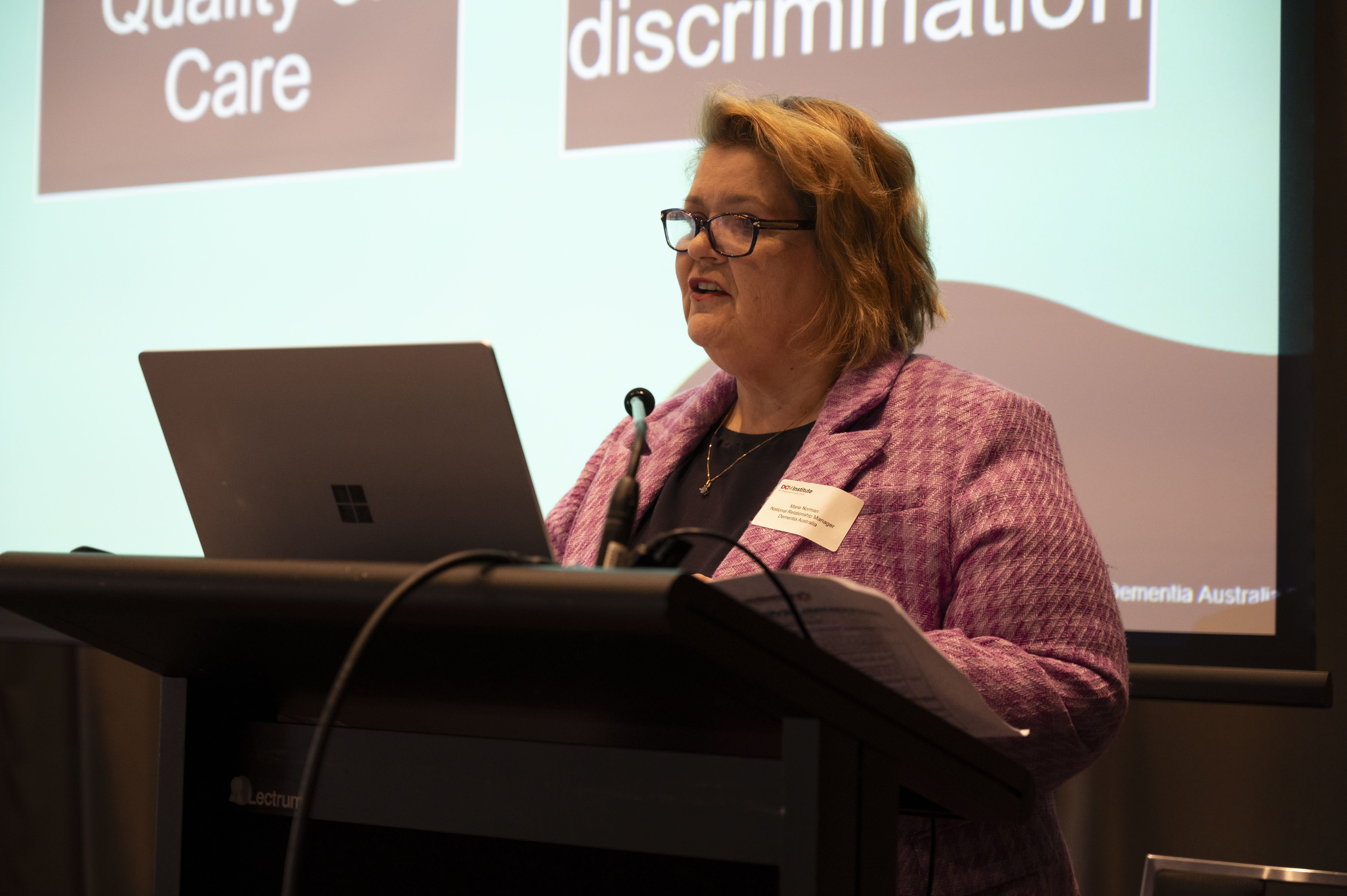
A top down view on Dementia by leading operator
With the average age of retirement village residents now 81, and one in three Australians aged over 85 living with some form of dementia or cognitive impairment, it doesn’t take a mathematician to realise that dementia is no longer an emerging problem for village operators – it’s on the doorstep now.
With few legal avenues available to move residents from the village onto residential aged care, Village Managers are increasingly dealing with residents with higher-level dementia needs ranging from wandering and ‘sundowning’ to agitation and aggression.
is there a solution?
James Wiltshire, Executive Director of the DCM Institute, which provides professional development for Village Managers and head office staff, says it is clear that Village Professionals need some strategies and training to be able to identify and understand any changes in their residents, and be able to act instead of waiting for the behaviours to escalate.
Managers and staff at the coalface of our sector are starved for guidance on how to approach the subject of dementia with residents and with their families.
James Wiltshire, Executive Director, DCM Institute
The DCM Institute held a series of Professional Development Days across the country last year that covered the issue of dementia and retirement living in partnership with dementia advocacy peak body Dementia Australia.
The operator also has a responsibility to take on a leadership role in educating its staff and residents about dementia.
One operator that has taken on the ‘dementia challenge’ is Keyton, which has 76 operational retirement villages across Australia and has seen a majority of its village staff from the executive leadership team down complete training with Dementia Australia.
“We obviously see in the villages that our staff witness a lot of changed behaviours, some of which may be because a resident has dementia,” said Marcelle Wilson, Keyton’s National Operations Manager – Governance & Compliance.
“So, it’s important for the staff that they understand what dementia is, and what they can do to assist that person living with dementia to feel more comfortable.”
“From the other residents’ perspective, they are living in a community so it’s important that they understand so that they can be more patient with people who might have some behavioural symptoms of dementia.”
Educating residents to end dementia stigma
Keyton first started working with Dementia Australia in August 2018 when the operator held Dementia Friends workplace events in its Melbourne, Sydney, and Perth corporate offices and for staff across 26 villages in ACT, NSW, VIC, and QLD.
The Dementia Friends campaign is run as a free morning or afternoon tea event where staff can come to learn more about dementia and hear people living with dementia tell their stories via a series of videos with the aim of reducing some of the stigma around the disease.
“We know there is some discrimination and angst [among village residents], and it’s driven by a lack of understanding of the disease,” said Marie Norman, National Relationships Manager at Dementia Australia, who worked with both Keyton and DCM Instite on their dementia education content.

People often find it confronting if their fellow residents are disorientated or being more outspoken, which can happen depending on where the damage is in the brain.
We help them to understand that it is a disease process and not someone simply becoming difficult.”
Marie Norman, Dementia Australia
Supporting carers in the village
The other aspect is supporting those residents where one person is acting as a carer for a partner living with dementia.
“There’s a whole support network system that needs to be in place,” said Marcelle.
Some carers aren’t aware of the resources that are available for them to tap into so it’s also about connecting them with organisations such as Dementia Australia.
Marcelle Wilson, Keyton’s National Operations Manager – Governance & Compliance
Dementia Australia can also provide villages with advice on changes to the village, for example, improved signage and using name badges, that can help people living with dementia to navigate their way around more easily.
ongoing dementia education required
Following the success of these Dementia Friends workplace events, Keyton rolled out Dementia Australia’s Understanding Dementia training – three-hour, face-to-face sessions for village staff – across all its villages in 2019, with 400 staff taking part.
These training sessions discuss steps that Village Managers can take to better support their residents.
The education gives them the capacity and confidence to be able to handle situations and empowers them to make better decisions to work out a way to support that person
Maria Norman, Dementia Australia
“Village Managers want to provide residents with a quality of life,” James said. “There does come a time when this can’t be achieved without having the skills and knowledge of how to facilitate access to the care and support.”
Dementia Australia advises that this kind of training should also extend to all village staff, for example, reception, gardening, and maintenance staff who may have contact with residents.
With the Government putting more funding into helping older Australians to live at home for longer – and residential aged care increasingly reserved for people at the end-of-life or palliative stage – the reality is that villages will be home to residents with higher-level dementia care needs.
Should all village operators be looking at Keyton’s initiatives and how their organisation is equipping staff and residents to face this challenge head-on?
Dementia Australia’s National Dementia Helpline is available 24/7 on 1800 100 500 for advice and support. Village staff can also contact Marie and the team at Dementia Australia via email at development@dementia.org.au.
This article is part of a special eight-part SATURDAY project on dementia. To read the full arcile, subscribe here.
Tag:dementia, Dementia Australia, keyton



